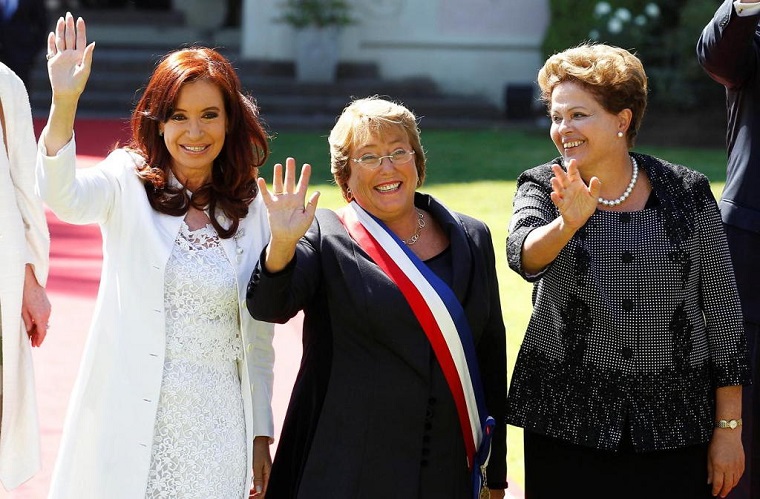When Michelle Bachelet steps down as Chile’s president on March 11, she will bring to a close not just her own administration but also an era of female leadership in Latin America.
Between 2006 and 2018, four women served as presidents in the region. On the political left, Bachelet and Argentina’s Cristina Fernández both completed two terms.
Brazil’s Dilma Rousseff, of the progressive Workers’ Party, was impeached a year into her second administration. And, on the center-right, Laura Chinchilla governed Costa Rica from 2011 to 2014.
For gender researchers like ourselves, this is a rare chance to assess how the president’s gender influences policy in Latin American countries.
Global research has confirmed that having women in the highest echelons of power leads to greater political engagement among women and girls. We wanted to know what Latin America’s four “presidentas” had done to promote gender equality while in power.
Here’s what we learned.
Prior studies had already shown that Latin America’s presidentas nominated more female cabinet ministers, paving the way for future generations of female leaders.
And based on public opinion survey data, we knew that in Latin American countries with female heads of state, women were slightly more likely to participate in local politics than in countries run by men.
Latin Americans who have a woman for president are also much less likely than other respondents to say they think men make better political leaders than women.
But our new research disproves the admittedly tempting idea that merely putting a woman in power improves gender equality. Other factors, including party politics and the presence of strong social movements, turn out to exert more influence on a president’s policies.
Take abortion, for example, which is largely outlawed in heavily Catholic Latin America. Even in the few countries, like Costa Rica, that allow women to terminate pregnancies resulting from rape, the procedure is still extremely difficult to obtain. Fully 97 percent of Latin American women cannot get safe, legal abortions, leading to high rates of maternal mortality.
But attempts to ease Latin American abortion laws have historically provoked a deep conservative backlash. In Brazil, Rousseff declared her support for abortion liberalization on the campaign trail in 2010, but had to backpedal due to intense media criticism. Once in office, Rousseff remained silent on reproductive rights.
Bachelet also shied away from the issue during her first term. The Catholic opposition was well organized and, at the time, Chile’s feminist movement was relatively weak. Bachelet focused instead on access to emergency contraception.
By the time she ran for re-election in 2013, however, feminists had coalesced around abortion reform. They pushed Bachelet to include reproductive rights in her campaign and kept the pressure on once she was in office. In 2017 Chile made abortion legal in cases of rape, fetal deformity or danger to a mother’s life.
Continued next page
(133 VIEWS)
